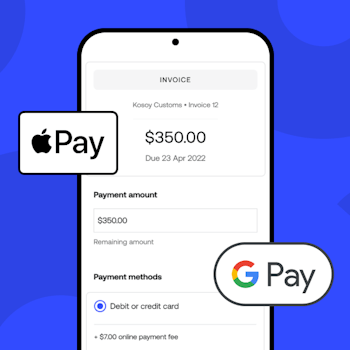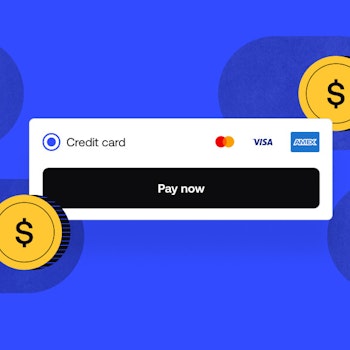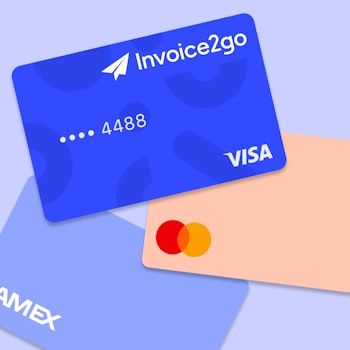
How to set yourself up as a self-employed independent contractor in the UK
So, you’re great at what you do and are thinking about how to get set up as an independent contractor. Friends and colleagues have encouraged you to strike out on your own – and now, you think you’re ready.
This time can be both exciting and anxiety-inducing. We commend you and are excited about your bold action. But, there’s an essential truth you need to know: being a great carpenter, chef, or consultant doesn’t mean you’ll be great at being independent – at least not right away.
Success as a contractor requires a new set of business skills you may have never thought about. While all these skills can be mastered with time and effort, they’re not always intuitive, and you will likely need help in the beginning.
Still, with the help of this guide, you’ll be on the right track. Here are 10 things you need to consider as you get set up as an independent contractor:
1. Be honest with yourself
The first question to ask yourself is: Am I ready to be my own boss? And don’t be so quick to answer in the affirmative. It’s not as easy as it sounds. Even people with a solid business plan and secure funding sometimes discover the harsh reality that they don’t have the personality to go it alone.
They don’t realise how much they relied on the structure of a 9-to-5, having a manager to direct them, and a guaranteed influx of clients brought in by the sales team.
Can you make your own schedule each day and week? Do you have solid self-discipline? If you honestly think so, you probably have what it takes.
Next question: Am I ready for (sometimes major) fluctuations in income? It may be several weeks or over a month before you send out invoices and are paid. Also, while working for an employer can be a drag, one benefit is that you usually know how much you’ll make in a month. This may not be the case immediately when you start as a contractor.
You need to prepare for a gap in income and learn how to budget ahead. Anticipate expenses for equipment and supplies – unless you know they will be provided for you.
Question #3: Am I good at managing my money? Or – Am I willing to learn? Be careful not to go overboard with start-up purchases, thinking the more you have, the better prepared you’ll be. You can always purchase additional items as you establish yourself.
Financial planning must be thought through before you break away from your current employer. Otherwise, you’re setting yourself up for stress and a potentially big disappointment.
2. Find another independent contractor to be your mentor
On top of this, you might already know several independent contractors who can help you get set up. If not, it’s time to ask around. Make a post on your social media accounts or talk to your friends and family. And no, this isn’t weird. People love to talk about their expertise, and many will be glad to help you if you reach out and ask.
Single out one or two contacts who have successfully been contracting for several years. Ask if you can take them out for coffee or a beer. If they’re busy, even a 10-minute phone call can be valuable. Pick their brain about the unexpected challenges they faced when they started.
Also, talk about their overall experiences. What would they do differently in hindsight? What opportunities did they jump on – or miss? A simple meeting over coffee can save you years of learning and thousands of dollars in mistakes. These can be some of the most meaningful business insights you’ll ever receive.
Close the loop and build relationships with your mentors
Follow up every few months with the people you talk to. If you take a mentor’s advice and it positively impacts your business, tell them.
They will appreciate your feedback – and this is the key to building a strong network. Relationships are give and take – so make sure you give back as well even if you’re just telling them about how they’ve helped you.
3. Tell the HMRC what type of business you have
Your business structure determines how much you pay in taxes, your liability, and how HM Revenue and Customs (HMRC) will view your company.
It’s time to choose a business structure so that you can get set up as an independent contractor (more details about this in the next section). Here is an overview of the most common types:
Sole Trader
As a contractor, this is most likely you. This means that you run your own business as an individual and you are self-employed. Being a sole trader gives you both complete control and responsibility. Your business assets and liabilities are not separate from your personal ones.
This structure is right for low-risk businesses and anyone who wants to start out simple before expanding with additional products and services.
Business Partnerships
A partnership is the simplest way for two or more people to run a business together. In a partnership, your business responsibilities are shared with your nominated partner, including profits, losses, and bills for expenses. Each partner is required to pay tax on their share. A partner doesn’t necessarily need to be another person, it could also be a limited company, which counts as a ‘legal person’ in this instance.
Limited Companies
If you form a limited company, its finances are separate from your personal finances. However, there are more reporting and management responsibilities involved in running a limited company.
There are two types of limited companies; limited by shares or limited by guarantee. The biggest difference between the two is that limited by shares companies are usually businesses that make a profit, while limited by guarantee companies are usually ‘not for profit’.
This is an excellent choice for medium- to high-risk businesses or individuals with substantial personal assets.
If you’re still unsure which type of business structure is best for you, ask one of your mentors, an accountant, or a business solicitor.
4. Yes, you need to get business insurance
The type of insurance you get will depend on the type of business you are running. Often, if you are a freelancer or a contractor, the terms of your contract will determine if you need to be insured. Most large businesses will require their contractors to be covered for both professional indemnity and public liability.
Professional Indemnity
Professional indemnity insurance is an important type of business insurance if you give advice, provide a professional service to clients, or handle other people’s data or intellectual property. This will cover you for costs that you may face if your work, service or advice causes a client to suffer a loss – either financial or reputational.
Public Liability
Public liability insurance is important if you have visitors to your place of work, or if you carry out your work on the sites of your clients. It covers the legal and compensations costs you are required to pay if a member of the public makes a claim against your business.
Don’t make the mistake of assuming that your home contents insurance will cover work that you complete at home, as many home insurance policies stipulate that business property and activities are excluded.
The type of insurance that you’ll need will largely depend on what kind of business you’ll be doing from home. It’s best to consult with an experienced and trusted insurance broker to help determine the proper coverage you’ll need.
5. Naming your new business
As a sole trader, you can choose to operate under your own name or choose another name for your business. If you are simply using your own name, you do not need to register this.
Choose a business name
When trying to come up with a name, choose one that reflects your identity and gives potential clients a clear understanding of what you do. Once you’ve chosen a name, you can check that it is available through the National Business Register. There is no legal requirement to register your business name, however, doing so protects it from being used by others.
Trademark your business name
If you build a brand around your business name, you’re going to want to protect that brand. This will protect you from anyone trying to imitate your business, products, or services. A trademark will enable you to take legal action against anyone who uses your brand without your permission, which may come in handy once you’re more established.
Register your domain name
Your domain name is the web address people use to find your website. You’ll want to check that the right domain name is available before settling on a business name, as otherwise you can be stuck with two separate names for your business and your website – this could be confusing for potential customers.
6. Stay on top of your taxes
Even small businesses need to pay taxes. When you were employed, you were used to your employer automatically deducting tax from your pay. Now you’ll have to do this on your own based on how much you earn and what your costs are, so it will be important to keep track of your business’s sales and expenses.
When you decide you want to be self-employed or start a business you need to register for Self Assessment – this is how you will pay your Income Tax. You will need your National Insurance Number to register.
Once registered, you will automatically be sent a Unique Taxpayer Reference (UTR). This is the number you’ll use going forward whenever you complete your tax return.
7. Open up a shiny, new business bank account
Opening a business bank account is an essential set to get set up as an independent contractor. It will make it significantly easier to track business expenses and keep your business finances separate from your personal account. Having all of the correct documentation ready will make opening your business banking account quick and easy. You’ll need proof of ID as well as proof of your address in the UK.
You may also need to provide further business details such as your UTR, intended earnings, tax status, sources of income, and the amount of funds you have invested in your business.
Shop for a bank that offers perks like low-interest credit cards, business savings accounts, and low fees on online transactions. Before you choose, make sure you know exactly what fees and charges to expect from your account.
Remember: Where you do your personal banking may not be the best choice for your business. Some new contractors do this only to later find they could have gotten better benefits elsewhere.
Note: If you’re curious to learn about small business grants that may be available to your business, click here.
8. Make sure your accounting game is on point
Unless you’re an independent accountant, doing your own bookkeeping will probably be something new. Save on accounting fees by organising your books and setting up a system for invoicing your customers.
Keep it simple. Don’t make it so complicated that you won’t know where to find things on your computer. Also, regularly back up your computer files to a place like a secure cloud location. This will protect you if you have computer issues.
If bookkeeping simply isn’t in your skillset, consider hiring an accountant. Ask around – especially to your mentors. Make sure that you find an accountant who understands your industry and what your business is.
Keep in mind that in the UK, the term ‘accountant’ is not regulated, so technically anyone can call themselves an accountant – whether they have qualifications or not. Even if you see the words ‘professional’ or ‘tax expert’, they don’t mean much without a qualification. Find a trustworthy, experienced accountant that can provide you with guidance that goes far beyond helping you at tax time.
9. Get up and running with your invoice and payment system
If you aren’t added to a company’s payroll as an independent contractor, tasks like invoicing, expense tracking, and reporting can be done entirely on a smartphone or laptop. Onboarding a contractor invoicing software like Invoice2go can make your invoicing tasks easier.
Helpful resources like Invoice2go, a Bill.com company, have established themselves as a dependable and secure cloud-based app that helps with the continuous management of payments and accounts receivable.
10. Keep your reputation golden
Whether you have one contract or several, you’ll want to build those relationships for the long term. Regardless of the industry, it’s easier to get repeat customers than to establish new ones. Keep this in mind.
Also, as an independent contractor, your brand is your reputation. Therefore, your best practices should include:
- Be known for your openness, honesty, and integrity
- Avoid office chat and stay focused on getting the job done
- Don’t compete against employees and peers – partner with them and provide support
- Under promise and over deliver every time
- Accept responsibility when warranted
- Treat every contract customer as if they are your sole employer
There you have it.
Getting set up as an independent contractor requires asking yourself some hard questions, networking with other contractors, and handling important administrative tasks. You may have a few bumps in the road as you get started, but with consistent effort, you can also discover new-found freedom and opportunities to grow personally and professionally.
We hope these tips will help you on your journey. For more great advice on how to get started as a self-employed business, be sure to join our Subscriber Success Community.
Related Articles

How to accept credit card payments on Invoice2go in 3 simple steps

Accept payments online via Apple Pay and Google Pay

Must-not-miss write-offs as you wrap up 2022 year-end finances

5 ways accepting credit and debit card payments helps your business stay resilient

4 easy ways to increase cash flow today

What is Small Business Saturday and why is it important?
The features and surprising benefits of a well-designed packing slip
